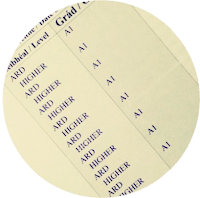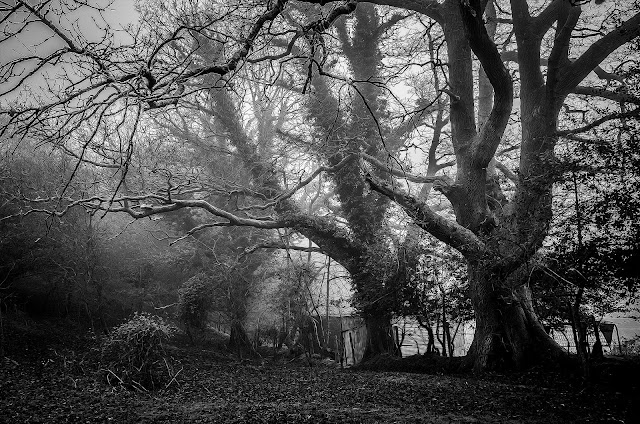The language of the play “Macbeth” contributes to the creating of the atmosphere of evil and violence which pervades the play.
Discuss this statement with reference to the play.
Click here for the first part: Violence. You may also like: Full Notes on Macbeth (€)
Paragraph 3: Disease
Shakespeare’s references to blood throughout the text give the play a morbid tone and assist in recognising the characters’ malignant minds and their evil deeds. Imagery of blood in a setting of violence is a symbol of danger and pain, reminiscent of death, disease and disintegration in all of Scotland: “Bleed, bleed, poor country… each new day a gash is added to her wounds”. Macbeth’s sword “smoked with bloody execution”. Lady Macbeth looses her mind with guilt, obsessing about blood on her hands: “Out, damn’d spot.” The Witches are of indeterminate nature, monstrous in appearance: “You should be women, and yet your beards forbid me to interpret that you are so.” The description of the ingredients of the Witches’ potion is a far cry from a healthy chicken and vegetable soup: “Eye of newt… tongue of dog… liver of blaspheming Jew… nose of Turk… finger of birth-strangled babe” and so on. This is evidently used to create a liquid Frankenstein so sinister that the reader is instantly alerted that there is some real evil brewing in this play.
Paragraph 4: Nighttime
Darkness, nighttime and the colour black frequently referred to in the play heighten the atmosphere of evil. It is always at nighttime that the Witches, the “black and midnight hags,” show their faces and act as “instruments of darkness.” Nighttime serves as the cover for Macbeth’s murders. He pleads: “Stars, hide your fires! Let not the light see my black and deep desires.” Lady Macbeth echoes this as she calls on the night for help: “Come, thick night, / And pall thee in the dunnest smoke of hell,” Most of the play is set at night time: it is only bright twice – when Duncan arrives at Inverness and when Macbeth is about to die. Both are events that subvert Macbeth’s evil plot.
Paragraph 5: Pathetic Fallacy
This closely relates to the changes in nature that occur along with the plays events and turns of atmosphere. On the night when Duncan was killed it was abnormally dark: “There’s husbandry in heaven, their candles are all out.” This unnatural occurrence corresponds to the “unnatural” killing of the rightful king: “Unnatural deeds / Do breed unnatural troubles”. The order of things at the time hinged on a belief in the divine right of kings. When Duncan was killed upsetting the natural order, there is an echoing upset in heaven itself. When the cursed pair carry out their plan, the country descends into violent horror and disarray. Pathetic fallacy, a literary method used to illustrate deeper issues by attributing human qualities to the surroundings, is used here: “A falcon, tow’ring in her pride of place, / Was by a mousing owl hawked at and killed.” Perhaps, this is the mousing Macbeth trying to be in place of a hawk by slaughtering the towering royalty and violating the divine right of kings?
Conclusion
It is clear that the playwright has gone to great lengths to come up with some stomach turning sinister imagery. The underlying plot that is purely evil is well framed by this use of language. The reader can visualise, feel and hear the daggers chopping, enthralling, impaling – gashes, blood and body parts of dead babies transecting the dark as they are cut off, all topped with a touch of obsessive-compulsive behaviour and a thick Highland accent – creating one of Shakespeare’s most celebrated plays.
Your feedback is valuable and welcomed.
Tweet @625points
 |
| Best of luck! |

